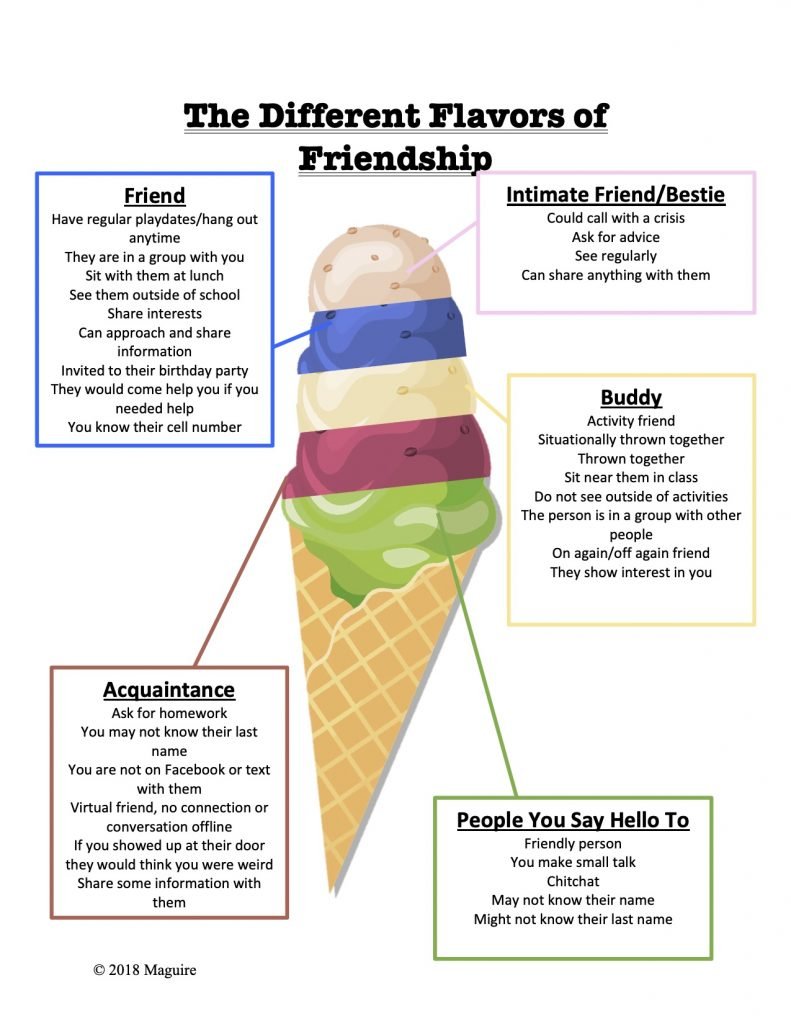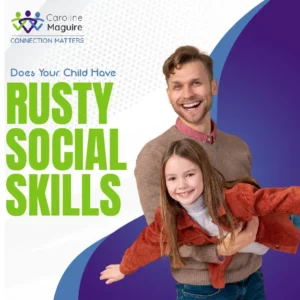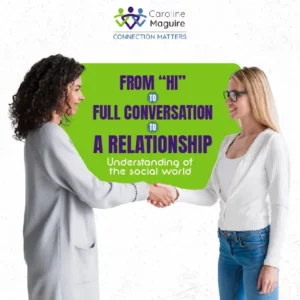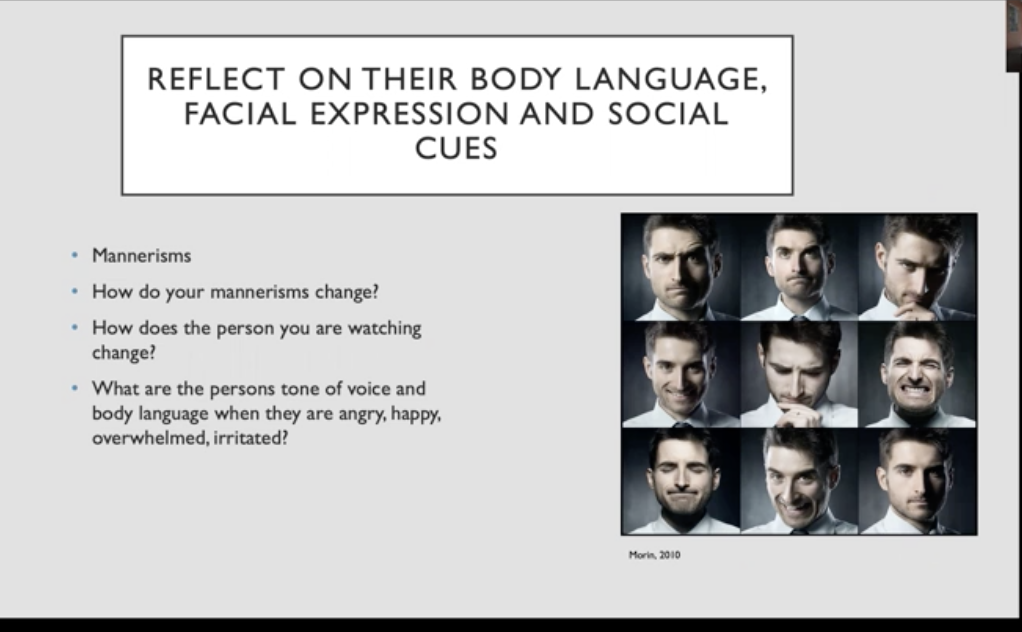The Importance of Social Skills in Teens and Young Adults
We are not born with social skills – they must be taught. Our kids’ future career and relationship success depends on how well they harness social skills now. Failure to launch syndrome is prevalent in today’s society. Your gift to your teen or young adult is to give them plenty of opportunities to put their face-to-face communication skills to the test.

The Importance of Face-to-Face Interactions
Texting and messaging do not replace critical face-to-face interactions. We owe it to our kids to help them learn how to communicate effectively, both online and off. Knowing how to converse and handle themselves with all kinds of people, and in all types of situations, will help your teen and young adult leave home with the necessary social skills to thrive.
This may be a long journey – especially if your teen or young adult is resistant. She may not show enthusiasm to work with you, but do not surrender. Step into their shoes, really explore with them and continue to have an open, collaborative conversation.
Key Ingredients for a Socially Fulfilling Life
One of the hardest parts of being a teen is breaking out of their protective shells. Help you kid to build the social skills need to thrive.
- Making Eye Contact
Making eye contact is one of the more important social skills, yet it doesn’t come easy for many teens. Shyness, low self-esteem, screens, lack of interest, “not feeling it!” or not realizing what they are doing are some of the reasons they need reminders.A quick tip is encourage your child to look the partner in the eye for 50% of the time when they are talking, and 70% when listening. Another option is to hold eye contact for a few seconds, then to look away (slowly and naturally) and then to return.
- Interacting with Adults
When interacting with a professor, advisor or a friend’s parent, “Wassup, dude!” doesn’t cut it. Help your teen or young adult practice proper introductions – with eye contact – and to use names when addressing or introducing adults. This will take practice as they probably have not had much experience talking to adults. In time, they will become less intimidated and more natural around adults. - Engaging in Reciprocal Conversations
Conversations require give and take. A general rule of thumb is to show the same – or even more interest – when responding. One simple trick is to help your kid respond to a question or comment with another question or comment. For example, if someone asks, “How are you?,” our teen could respond with “I’m OK, working hard at trying to ace the next test.” Extra credit for showing interest in others first! Read more: Build on That
Reading Non-verbal Language
Studies show that 60 percent of what a person communicates is via nonverbal facial expressions and body language. Not only do we need to read others, we need to acknowledge and monitor our own nonverbal messaging. In other words, yes, that eye roll was noticed! Read more about nonverbal communication cues. Read the RoomListening
Listening for most teens basically means not talking for a bit, until you can jump in and talk about yourself. Listening to comprehend and knowing what not to say takes time and mastery. Remember what Grandma taught us, “If you don’t have anything nice to say, don’t say anything at all.”Showing Empathy
Yes, our teenagers are self-absorbed – and it’s a normal part of the development process as they work to form their own identity. Expressing empathy and sympathy for others doesn’t comes naturally to a lot of teens. This is where modeling of showing concern, care and compassion for others and showing a genuine willingness to jump in and help will coach our teens to do the same.Making a Great First Impression
First impressions take only 3 seconds to form. Our teens need to learn that going for the job interview or the first date, they need to start by smiling, dressing appropriately, showing up on time shaking hands, being attentive and polite and being courteous. They have much to offer, so encourage them to be themselves and not trying to adopt a personality or mannerism that isn’t genuine.
A Sense of Belonging Starts at Home
Nurturing our teen’s sense of belonging starts at home. Without support, unconditional love, acceptance and encouragement, a teen will look for belonging in all the wrong places, and with the wrong people. Your teen’s A need to belong is so strong that they compromise who they are – their values, morals or beliefs – at the expense of fitting in.
A recent study published by Pediatrics confirmed this notion revealing that youth who feel strong family and school connectedness are 66 percent less likely to experience long-term health risks into adulthood including mental health, violence, sexual behavior and substance abuse – a statistic that rings true even more so amidst our kids’ struggle with isolation during the pandemic.
 Choosing Friends
Choosing Friends
The old adage, “Make new friends but keep the old, one is silver, the other gold” holds especially true as your teen goes off to college (or starts a new life). They will meet lots and lots of people- peers, romantic interests, professors, sports teammates, etc, and although that is good and healthy, remind them to stay close to long-term relationships they hold dear – family, friends, grandparents, etc. Check out these 5 Ways To Help Your Teen Build Authentic, Lasting Friendships- Handling disagreements
Conflict resolution is a key component of socialization that most of us encounter on a daily basis. Help your teen or young adult prepare to deal with conflicts in advance. Many teens and young adults have difficulty communicating their feelings without allowing emotions to take over the conversation. Work with your kid on how to get a positive conversation started. I recommend modeling a pretend conversation to practice positive, productive communication regularly. This life skill prepares our kids to make, strengthen, and salvage relationships. - Bullying, teasing, rejection, gossip, and cyberbullying
Talk to your kids about the proper way to treat people, and furthermore, model that behavior. Sit with the mom who pleases you less or maybe is even a bit boring or strange; give her a chance and you might be surprised what you learn about her. It is important we all do this, because our kids are watching. - Romantic Relationships
Broken hearts hurt no matter the age. A few suggestions such as taking things slowly, looking for shared values, looking out for red flags, trusting instincts and not settling may possibly help avoid some future pain. Read more on social skills and intimacy.
- Personal Safety
Nothing scares a parent more than the potential for harm. You can never have enough discussions around safety to make sure they understand fully the danger, risk and consequences of any risky behavior.
Remind them to be aware of their surroundings, use the buddy system, lock doors, and be extra careful when getting into their car. Additional topics include risky behaviors such as drinking excessively, drugs, sex and consent, driving while intoxicated or distracted, etc. - Accepting Responsibility
As adults, we must accept full responsibility for what we say and do. Creating a culture of accountability, assigning chores and expecting rules to be followed helps pave the way. - Time Management Skills/Prioritizing
Procrastination is a hard to fight against, but an important skill to learn. Help your teen understand that distractions are often the culprit and staying organized will be important to their future success as a student and as an employee. - Fostering a Strong Work Ethic
School, work and obligations can be exhausting to manage. Help you kid to build a strong work ethic by assigning chores, letting them reap the consequences of their actions, and recognizing that hard work happens each and every day, whether at school or at work. - A Grateful Heart
Acquiring appreciation and gratitude may be one of the most important life skills. Helping your child understand the importance of giving to others, of appreciating the good even in the bad, and nurturing positive relationships will help build gratitude and joy over their lifetime. - The Importance of Well-Being
You have done your best to prepare healthy meals and now it is time for them to make choices on their own. Remind your kid “why” salads over red meat, exercise over being a couch potato and the importance of healthy stress management techniques are important. - Managing Money
Managing money is another critical life skill. Learning how to review interest rates, apply for a credit card, save money, make a monthly budget, avoid overspending, recognize fraud and shopping for deals will go a long way with a teenager who’s living life on their own for the first time.
Products Designed for Teens and Young Adults
These recommendations have been specifically curated for you. Please feel free to browse these – and many other products – in our Store
Teen and Young Adult Blogs:
5 Reasons Why We’re All Hyper-Sensitive Now (And How You Can Take Your Sanity Back)
How Adept Are You at Reading the Room?
The White Noise Experience: An Answer to Getting Work Done
Additional Resources for Teens and Young Adults
The Effects of Social Emotional Distancing on Teens’ Social Emotional Development (Excellent and free presentation once you complete the form.)







